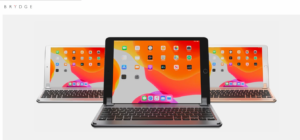From crypto to meme stocks to NFTs, money has never felt more fake. And so much ink has gone to waste on NFTs in the past year. So much so that you'd think the ordinary tech enthusiast would know by now what an NFT is, how you use them, the underlying technology it relies on... and why it's a ridiculous idea.
When there's so much hype around an upcoming trend, it's hard for tech writers to deny it outright—even more so when celebrities like Jack Dorsey and Michael Jordan are exaggerating the hype surrounding it. You've come to the right place if you want a piece on NFT without the sugar coating.
What in the World is an NFT?
Here is a refresher definition of a Non-Fungible Token (NFT): the deed to a digital piece of material is represented by an identifier (a token). The token is non-fungible since it cannot be replicated or divided into smaller parts, unlike currencies like the Dollar.
Thousands of computers worldwide hold ownership records to ensure that they are constantly accurate and up-to-date (the blockchain). No one will be able to pretend to possess the asset if it is protected in this manner. Computers on the blockchain develop and solve highly complex mathematical riddles to make the token unique and impossible to reproduce.
Here's Why NFTs Don't Make Sense
Making an NFT isn't as easy as it's made out to be. If you want to place it on the blockchain, you must pay a "gas fee," which is a tiny sum paid to whoever's computer is solving cryptographic puzzles to "mint" (put it on the blockchain). It takes a lot of energy to solve these puzzles, leading to enormous electricity bills. As a result, rewarding this individual is only right.
This isn't the Next Big Thing, folks. No program you or your friends or coworkers use daily relies on blockchain technology, even though the first blockchain was established a decade ago. In comparison, the internet had more than half a billion users when it was the same age as bitcoin.
The only utility for NFTs is as flimsy "stores of wealth" for bored millionaires to dump their crypto-gains in the absence of any actual use. Let's imagine you've created pieces of art supporting marijuana and opposing pharmaceuticals that are awe-inspiring—and just for fun, you put them up for sale at almost 500,000 USD. So Cannabis Crucifixion II and Cannabis Crucifixion IV are the two NFTs that result from your unparalleled talent and genius.
But there's a catch: there is nothing you can do to prevent others from downloading or distributing the image for free. The picture is no more valuable than before, even if you try to explain that a token has determined the picture's ownership. Furthermore, nothing stops others from copying and pasting the image to make their own NFT. If that's the case, why would you buy it?
It's possible to make the case that purchasing such an item HAS some value because you can copyright, sell, change and ensure a charge every time its resemblance is used—which sounds absolutely reasonable. But there's another problem. It is important to note that an NFT is not a piece of content but rather a code that identifies who owns it.
When buying an NFT, the buyer might believe that he has acquired the material linked with the NFT. In actuality, though, the content's original creator is still the copyright owner and retains the sole right to copy, distribute, change, perform, and display said content publicly. Seriously. What the heck?
Bottom line:
NFTs are ineffective. Even if they were true, they would be prohibitively expensive, both economically and ecologically, because of their inability to make sense in practice and philosophy.
As long as there was nothing else to do, people tolerated them during the past year. NFTs received far more attention during the pandemic than when the technology was first made available to the general public in 2017 because consumers had nowhere else to spend their money. Most NFTs have dropped by 50% or more since the economy reopened. Coincidence? I don't believe so, and neither should you.
Baden Bower News
Baden Bower
https://www.badenbower.com
news@badenbower.com




